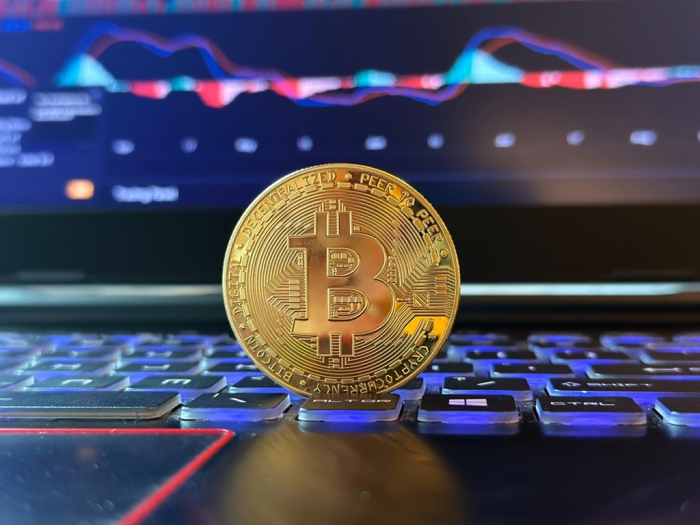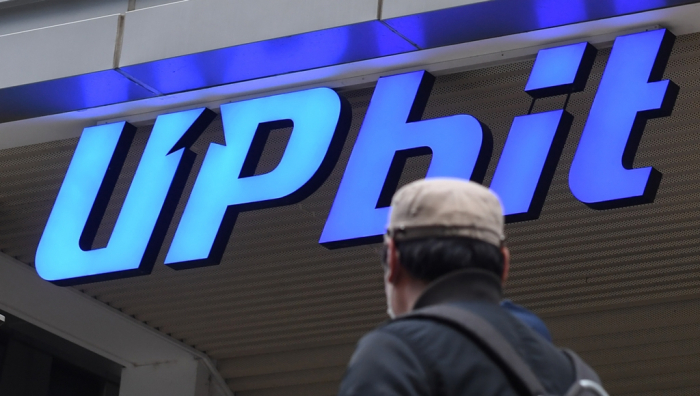
South Korea plans to allow companies listed on the local stock market to trade virtual assets, including cryptocurrencies, on a pilot basis in the second half amid a rekindled crypto craze worldwide.
The Financial Services Commission (FSC), the country’s top financial regulator, on Thursday announced the roadmap for corporate participation in Korea’s virtual asset market after holding an FSC Virtual Asset Committee meeting.
“We reached the consensus on the need to allow corporate participation in the virtual asset market, given the increasing blockchain-based businesses and to be in line with global regulations. A phased and gradual approach will be desirable to minimize potential risks,” said FSC Vice Chairman Kim Soyoung, who doubles as the committee chair.
Under the roadmap, nonprofit organizations, including universities and virtual asset exchanges, will be allowed to open bank accounts to sell such assets in the second quarter.
Under new rules, several universities, including Seoul National University, Korea University, Sogang University and Dongseo University, will be able to cash out a combined 1 billion won ($690,084) worth of WEMIX, a cryptocurrency donated by video game developer WeMade Co. in 2022.

Law enforcement authorities, including the prosecution, the National Tax Service and the Korea Customs Service, which have already been granted 202 bank accounts since November to deposit confiscating criminal proceeds, will also be allowed to sell digital assets starting in the second quarter.
LISTED FIRMS, PROFESSIONAL INSTITUTIONS TO TRADE FROM H2
From the second half, about 3,500 listed companies and professional investment corporations registered under the Capital Markets Act will be permitted to open corporate accounts for virtual asset ownership and trading on a pilot basis.
The government has restricted corporate virtual asset trading, citing concerns over potential money laundering and market overheating.
Companies, accordingly, couldn’t open real-name accounts for virtual asset trading at local banks.
With major economies, including the US, moving to integrate virtual assets into the regulatory framework, the Korean government is shifting its policy bias toward easing regulations on corporate cryptocurrency trading, analysts said.

The implementation of the Virtual Asset User Protection Act in July 2024 was also seen as laying the groundwork for introducing a wider virtual asset trading system, they said.
“Professional investors are already allowed to invest in high-risk, high-return derivatives. We see significant demand among these institutions for blockchain-related business and investment opportunities,” said the FSC in a statement.
KOREAN VERSION OF STRATEGY INC
Analysts said the FSC’s policy shift could lead to the emergence of Korean versions of Strategy Inc., formerly MicroStrategy Inc., the world’s largest corporate Bitcoin holder.
Listed on the Nasdaq, Strategy started as a software services company and began accumulating Bitcoin in August 2020, transforming into a Bitcoin-focused investment firm.
Strategy is known to be funding its Bitcoin purchases by issuing bonds, and as of now, it holds 478,740 bitcoins, valued at some $46 billion, which accounts for around 2% of Bitcoin’s total circulating supply.

BAN ON FINANCIAL FIRMS TO REMAIN INTACT
The FSC said financial institutions will remain excluded from the new policy, delaying the introduction of Bitcoin spot exchange-traded funds (ETFs) in Korea.
“Financial companies, such as banks and brokerage houses, will be banned from selling or buying crypto assets as we need to further assess potential risks when they participate in the market,” said an FSC official.
Consequently, they cannot sell crypto ETFs as they are required to hold virtual assets for the sale of such financial products.
Instead of allowing direct virtual asset trading, the FSC plans to prioritize legislative support for the security token offering (STO) business.
An STO, or tokenized IPO, is a type of public offering in which tokenized digital securities, known as security tokens (STs), are sold in security token exchanges.
GUIDELINES FOR VIRTUAL ASSET SALES, EXCHANGE OPERATIONS
The FSC plans to introduce guidelines by mid-year that will specify restrictions on tradable virtual assets and transaction volumes, with trial implementation beginning in the second half.
Since most nonprofit corporations still lack clear standards and procedures for receiving and liquidating virtual assets, the FSC said it will prepare guidelines for them.

The guidelines for crypto exchange operators will include restrictions on asset types, limitations on sales volumes, requirements for prior user disclosures and mandatory reporting to supervisory authorities.
Last month, the FSC said it plans to mandate information disclosures for listed virtual assets and require issuers to secure riskier stablecoins with reserve assets.
As virtual assets become popular, crypto exchanges have sprung up globally, coming under the scrutiny of regulators wary of the new asset class emerging as a haven for money laundering and financial crimes.
Korean regulators said they are particularly concerned about young people who see virtual assets as a quick path to prosperity amid persistently high unemployment and skyrocketing home prices.
The number of Koreans investing in cryptocurrencies recently broke past 15 million – about 30% of the country’s population. Bank of Korea data showed that Korea was home to 15.6 million retail cryptocurrency investors as of the end of November, up 610,000 from a month earlier.
The figure is the total of crypto investors with accounts in the country’s top five crypto exchanges: Upbit, Bithumb, Coinone, Korbit and Gopax.
The intensity of trading has often seen cryptocurrencies such as Bitcoin trade at a much higher rate, called the Kimchi Premium, in Korea.
By In-Soo Nam
isnam@hankyung.com
Jennifer Nicholson-Breen edited this article.















